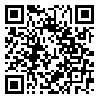BibTeX | RIS | EndNote | Medlars | ProCite | Reference Manager | RefWorks
Send citation to:
URL: http://ijn.iums.ac.ir/article-1-1813-en.html
2- Faculty member of nursing group, School of Nursing and Midwifery, Najafabad Branch, Islamic Azad University, Esfahan, Iran
Abstract
Background & Aim: Assertiveness as one of the life skills, leads to an increase in self-esteem , logical expression of thoughts and feelings , reduction of anxiety, improvement of social communication skills and consideration of the rights of others and meanwhile, taking one’s right and finally an increase in life satisfaction and happiness. This study aimed to compare the effect of Gestalt therapy and Ellis Cognitive- Behavioral therapy on assertiveness of nursing students.
Material & Methods: It was a clinical trial, with pre-test - post-test design and control group. Among 80 nursing students enrolled in the school of nursing and midwifery of the Najaf Abad branch of Islamic Azad University in academic year of 2013-2014 who were at the beginning of their field training, those who were deficient in assertiveness (n=36) were detected by ASA questionnaire and randomly assigned into two experimental and one control groups (each = 12). The experimental groups including Gestalt therapy and Ellis Cognitive Behavior therapy received training during 8 sessions, while the control group did not receive any interventions .Post- test was performed immediately after training with the same tool. Data was analyzed by analysis of covariance , one-way ANOVA and post hoc LSD tests using SPSS-PC (v . 20).
Results: Analysis of covariance showed no difference between the groups in terms of assertiveness before intervention (P > 0/05) . After the intervention, a significant increase was seen in the mean score of assertiveness in both Gestalt therapy and Ellis cognitive behavioral therapy (P ˂ 0/05). Assertiveness scores were significant between each test and control groups (P ˂ 0/05). There was no significant difference between experimental groups after the interventions (P=0/48).
Conclusion: As the results showed, the effect of Gestalt therapy and Ellis cognitive behavioral therapy on nursing students’ assertiveness is the same. Accordingly , the above mentioned therapies as methods of psychotherapy could be used alternately to reduce inefficient beliefs of nursing students.Received: 2014/05/6 | Accepted: 2014/08/4 | Published: 2014/08/4
| Rights and permissions | |
 |
This work is licensed under a Creative Commons Attribution-NonCommercial 4.0 International License. |





